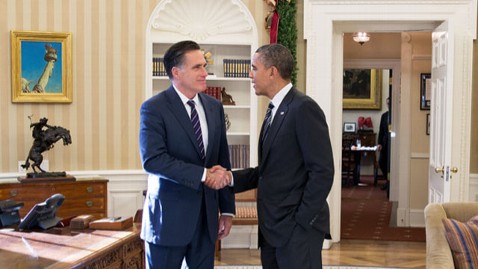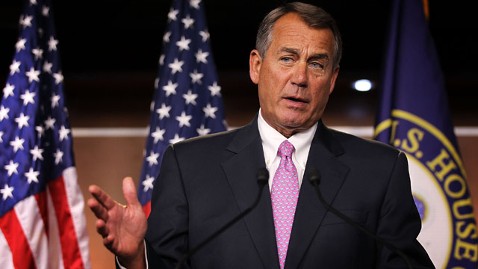CAIRO (Reuters) - Egypt's Muslim Brotherhood called for a rally backing President Mohamed Mursi outside his palace on Wednesday and leftists planned a counter-demonstration, raising fears of clashes in a crisis over a disputed push for a new constitution.
Mursi returned to work at his compound a day after it came under siege from opposition protesters furious at his drive to ratify a new constitution in a snap referendum set for December 15 after temporarily expanding his powers by decree.
The Islamist president said he acted to prevent courts still full of appointees from the era of autocratic predecessor Hosni Mubarak from derailing the draft constitution meant to complete a political transition in the Arab world's most populous state.
The Brotherhood, from which Mursi emerged to narrowly win a free election in June, summoned supporters to a demonstration outside the palace in response to what it termed "oppressive abuses" by opposition parties.
Brotherhood spokesman Mahmoud Ghozlan was quoted on its Facebook page as saying opposition groups "imagined they could shake legitimacy or impose their views by force".
Leftist opposition leader Hamdeen Sabahy promptly urged his supporters to go to the streets as well, heightening the chances of confrontation between Islamists and their opponents.
A spokeswoman for Sabahy's Popular Current movement asked protesters to head to the palace to reinforce those still camped out there after Tuesday evening's protests, in which officials said 35 protesters and 40 police were wounded.
Although they fired tear gas when protesters broke through barricades to reach the palace walls, riot police appeared to handle those disturbances with restraint.
About 200 protesters camped out overnight, blocking one gate to the palace in northern Cairo, but traffic was flowing normally and riot police had been withdrawn.
"Our demands to the president: retract the presidential decree and cancel the referendum on the constitution," read a placard hung by demonstrators on a palace gate.
The rest of the Egyptian capital was calm, despite the political furor over Mursi's November 22 decree handing himself wide powers and shielding his decisions from judicial oversight.
Crowds had gathered on Tuesday for what organizers dubbed a "last warning" to Mursi. "The people want the downfall of the regime," they chanted, roaring the signature slogan of last year's uprising that ousted Mubarak.
But the "last warning" may turn out to be one of the last gasps for a disparate opposition that has little chance of stopping next week's vote on a constitution drafted over six months and swiftly approved by an Islamist-dominated assembly.
MURSI STANDS HIS GROUND
Facing the gravest crisis of his six-month-old tenure, the Islamist president has shown no sign of buckling under pressure, confident that the Muslim Brotherhood and its Islamist allies can win the referendum and a parliamentary election to follow.
Many Egyptians yearn for an end to political upheaval that has scared off investors and tourists, damaging the economy.
Ahmed Kamel, spokesman for the Congress Party led by former Arab League chief Amr Moussa, said Mursi should meet opposition demands, not call for an Islamist counter-demonstration.
Some protesters have already gone beyond opposition calls for Mursi to scrap his decree, defer the referendum and set up a "representative committee" to revise the draft constitution, instead demanding the president's overthrow.
"The demands of the street are moving faster than those of the politicians," said Elijah Zarwan, a fellow with the European Council on Foreign Relations. "Now is the time for the Egyptian liberals to negotiate without conditions."
COURT PROTEST
Dozens of pro-Mursi demonstrators, watched by equal numbers of police, waved flags outside the Supreme Constitutional Court, whose rulings have complicated the Islamists' rise to power.
"You are not a political agency," read one banner held by the demonstrators, addressing a court that in June ordered the dissolution of the Islamist-led lower house of parliament.
Mursi issued his decree temporarily putting his actions above the law to forestall any court ruling to dissolve the upper house or the assembly that wrote the constitution.
State institutions, with the partial exception of the judiciary, have mostly fallen in behind Mursi.
The army, the power behind all previous Egyptian presidents in the republic's six-decade history, has gone back to barracks, having apparently lost its appetite to intervene in politics.
In a bold move, Mursi sacked Mohamed Hussein Tantawi, the Mubarak-era army commander and defense minister, in August and removed the sweeping powers that the military council which took over after Mubarak's fall had grabbed two months earlier.
The liberals, leftists, Christians, ex-Mubarak followers and others opposed to Mursi, elected in a close result against a secular rival, have yet to generate a mass movement or a grassroots political base to challenge the Brotherhood.
Protesters have scrawled "leave" over Mursi's palace walls, but the president has made clear he is not going anywhere.
"The crisis we have suffered for two weeks is on its way to an end, and very soon, God willing," Saad al-Katatni, head of the Brotherhood's Freedom and Justice Party, told Reuters.
Investors have seized on hopes that Egypt's turbulent transition, which has buffeted the economy for two years, may soon head for calmer waters, sending stocks 1.6 per cent higher after a 3.5 percent rally on Tuesday.
The most populous Arab nation has turned to the IMF for a $4.8 billion loan to help it out of a crisis that has depleted its foreign currency reserves.
The government said on Wednesday the process was on track and Egypt's request would go to the IMF board as expected.
(Additional reporting by Tom Perry and Yasmine Saleh; Writing by Alistair Lyon; Editing by Mark Heinrich)











